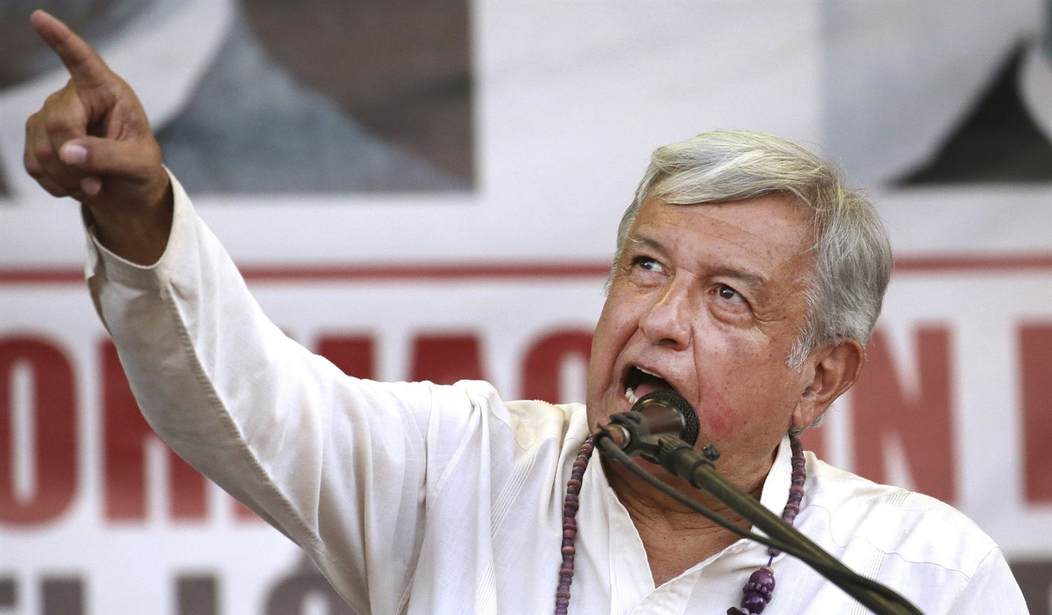It’s not just here at home that progressives are eager to adjust the Supreme Court to their liking. The party of Mexican President Andrés Manuel López Obrador (known as ALMO) also has control of congress and that body recently voted to extend the term of the chief justice for two additional years. The problem? The new law is clearly unconstitutional.
Lawmakers from López Obrador’s party have triggered outrage by voting to add two years to the four-year term of the Supreme Court chief justice, Arturo Zaldívar. Zaldívaris generally regarded as sympathetic to the president…
“This is the first time since our Constitution was established in 1917 that a majority of our Congress has voted in favor of a measure they know is unconstitutional,” former Supreme Court justice Diego Valadés told The Washington Post.
Zaldívar’s term as chief justice was supposed to end in 2022 but extending it two years means he’d retain the position through the rest of ALMO’s term. For his part, ALMO has said he approves of the new law and warned that opposition to extending Zaldívar’s term is a fake scandal created by conservatives who would prefer judges be “at the service of the mafias of economic and political power.”
But there doesn’t seem to be much doubt about the fact this new law is unconstitutional. In fact the lawmakers who passed it explicitly argued that constitutionally shouldn’t matter in this case because the party had more important things to worry about. A political analyst rightly called this “dictatorial logic.”
“I’m not saying that a dictatorship has been installed in Mexico,” wrote Jesús Silva-Herzog Márquez, a political analyst and columnist for the daily Reforma. “What I’m saying is that our political leadership has given legitimacy to the logic, practices and values” of such a system.
Of particular concern, he wrote, members of López Obrador’s Morena party justified their support for the new measure by arguing that his transformational agenda was more important than constitutional restrictions. “I’ve never heard such a clear defense of this dictatorial logic in a discussion in the Mexican Congress,” he wrote.
Human Rights Watch was even more blunt in its assessment of the law and the party’s support for it.
The move directly contravenes the Mexican constitution and undermines judicial independence. It is nothing less than a direct assault on the rule of law in Mexico. Zaldívar could have politely thanked the president for his praise and, at the same time, rejected publicly and unequivocally this reform that damages the credibility of the judicial system. Instead, unfortunately, Zaldívar has been, in the best of cases, ambivalent…
The provision is a shameless attempt by López Obrador and his party, Morena, to control Mexico’s judicial system. Zaldívar has ruled in favor of López Obrador and his allies, even on some of the court’s most controversial decisions. In October, for example, he voted in favor of López Obrador’s proposal to hold a referendum on whether all the recent former presidents of Mexico should be criminally investigated for corruption. He has also openly ventured into the political arena, publicly supporting President López Obrador when he decided to shelter former members of the Evo Morales government in the Mexican embassy during the serious political crisis Bolivia suffered in 2019.
The opposition has said it will challenge the new law in court and the chief justice has said he’ll recuse himself from that decision. So chances are good that this will be overturned long before any term is actually extended. Still, the Morena party’s embrace of a blatant unconstitutional power grab is a bad sign for where Mexico could be heading. The last thing we need is another Venezuela right on our border.









Join the conversation as a VIP Member